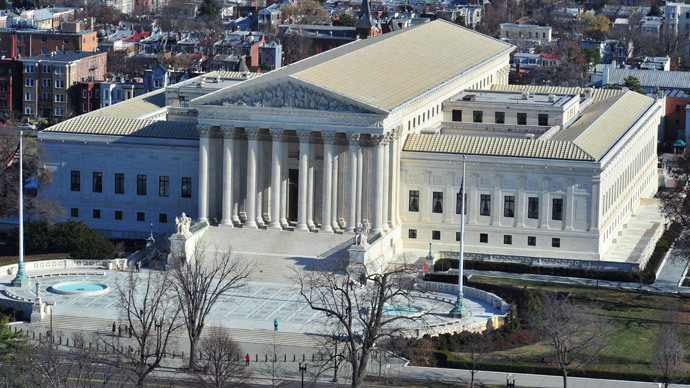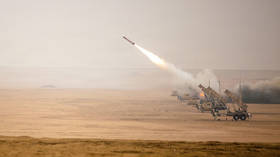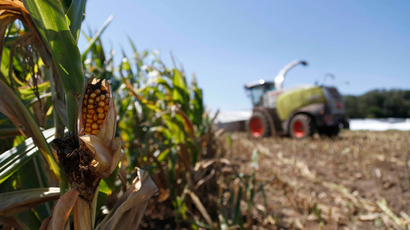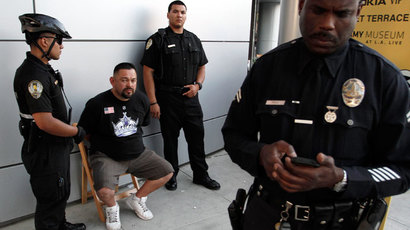For the first time video emerges of US Supreme Court proceedings

A video posted online Wednesday appears to be the first-ever footage of the US Supreme Court debating an issue to have gone public.
The court has long prohibited the use of cameras inside the chamber during court proceedings and the quality of the video published seems to be evidence of that strict policy. The video barely exceeds two minutes in length and is shaky throughout, with subtitles making up for the poor audio recording.
A group known as 99Rise, which describes itself as “a network of activists and organizers dedicated to building a mass movement to reclaim our democracy from the domination of big money,” has taken credit for the video.
The short clip seems to contain snippets from two separate oral arguments. The first half of the video is made up of deliberations on McCutcheon v. FEC, a still-pending case that will determine whether limits on contributions to federally elected political candidates constitutes a “burden on speech and association.”
The second half is footage from another oral argument in an unrelated patent case. At this point in the video a protester stands up and urges the court to overturn Citizens United, a polarizing 2010 decision that greatly increased how much money corporations are allowed to donate to candidates.
“I rise on behalf of the vast majority of the American people who believe that money is not speech, corporations are not people, and our democracy should not be available to the highest bidder,” the protester says. “Overturn Citizens United. Keep the cap in McCutcheon. The people demand democracy.”
Authorities identified Noah Kai Newkirk, a 33-year-old Los Angeles resident, as the protester. He was held overnight after being arrested under a federal law which forbids making “a harangue or oration” in the Supreme Court, according to the Wall Street Journal. He faces a maximum penalty of 60 days in jail and a $5,000 fine.
The Supreme Court is notorious for its refusal to allow recording devices of any kind into the chamber. Different factions of the public have called for loosened policies in the name of transparency, yet visitors are still required to relinquish most of their personal belongings – including phones, cameras, books, briefcases, and any number of everyday items – at the door before entering the courtroom.
As recently as last week a group of professional press organizations released an ad voicing their objection to the video ban within the court’s chambers.
“The Supreme Court’s decisions impact the lives of Americans everywhere, but only a privileged few get to witness history and see justice in action,” says an ad put out by the Coalition for Court Transparency.
“Leading Republicans and Democrats and a large majority of Americans support a simple fix – putting cameras in the Supreme Court.”
Moreover, with the advance in small, digital video recording devices, some are surprised leaks are not already commonplace.
“The technology is now present for a minute camera to be brought into the courtroom,” Richard Davis, a political scientist at Brigham Young University, told the Journal. “It is surprising to me that this hasn’t happened before. Will this lead the justices to approve cameras in the courtroom? I doubt it. It may mean they do more to keep cameras – portable ones – out.”
A court spokeswoman told various media outlets that the court is aware that a video was taken. Recording is against the court rules but not a violation of the law.














